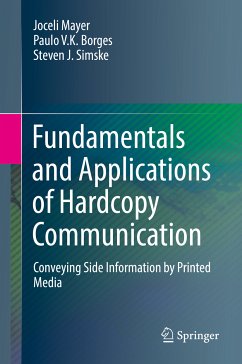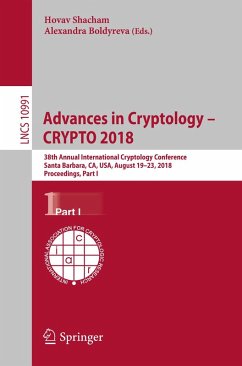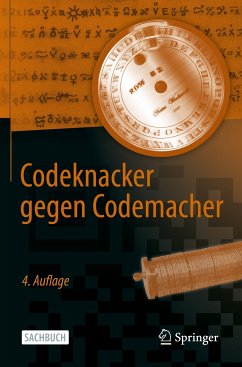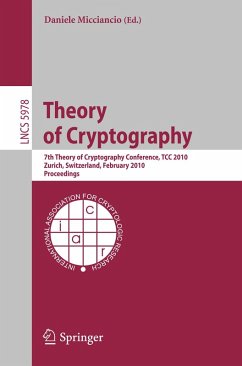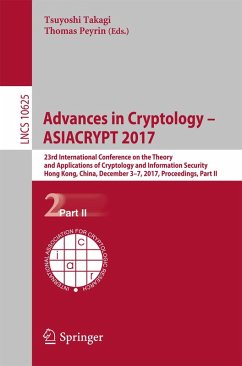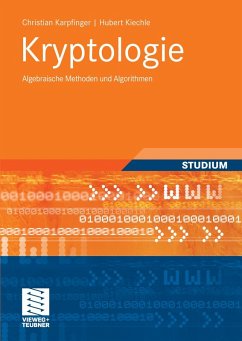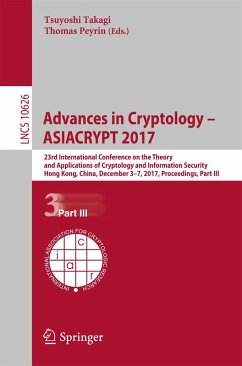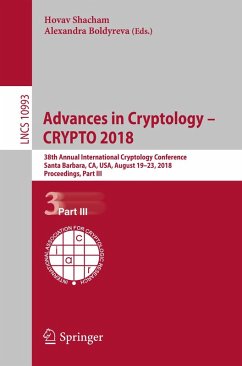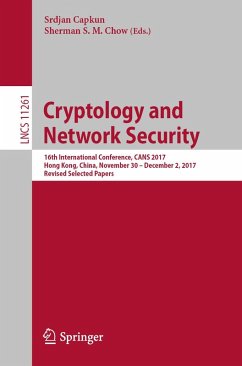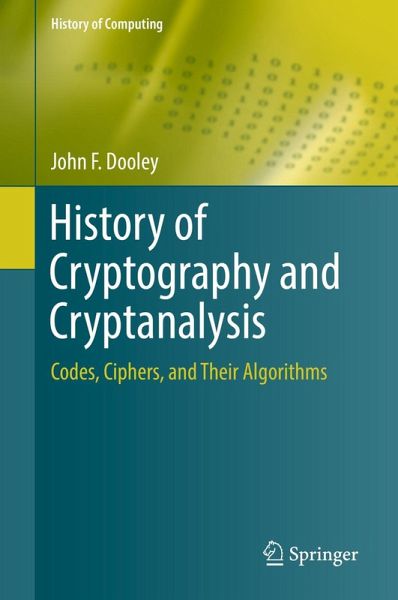
History of Cryptography and Cryptanalysis (eBook, PDF)
Codes, Ciphers, and Their Algorithms
Versandkostenfrei!
Sofort per Download lieferbar
32,95 €
inkl. MwSt.
Weitere Ausgaben:

PAYBACK Punkte
16 °P sammeln!
This accessible textbook presents a fascinating review of cryptography and cryptanalysis across history. The text relates the earliest use of the monoalphabetic cipher in the ancient world, the development of the "unbreakable" Vigenère cipher, and an account of how cryptology entered the arsenal of military intelligence during the American Revolutionary War. Moving on to the American Civil War, the book explains how the Union solved the Vigenère ciphers used by the Confederates, before investigating the development of cipher machines throughout World War I and II. This is then followed by an...
This accessible textbook presents a fascinating review of cryptography and cryptanalysis across history. The text relates the earliest use of the monoalphabetic cipher in the ancient world, the development of the "unbreakable" Vigenère cipher, and an account of how cryptology entered the arsenal of military intelligence during the American Revolutionary War. Moving on to the American Civil War, the book explains how the Union solved the Vigenère ciphers used by the Confederates, before investigating the development of cipher machines throughout World War I and II. This is then followed by an exploration of cryptology in the computer age, from public-key cryptography and web security, to criminal cyber-attacks and cyber-warfare. Looking to the future, the role of cryptography in the Internet of Things is also discussed, along with the potential impact of quantum computing.
Topics and features: presents a history of cryptology from ancient Rome to the present day, with a focus on cryptology in the 20th and 21st centuries; reviews the different types of cryptographic algorithms used to create secret messages, and the various methods for breaking such secret messages; provides engaging examples throughout the book illustrating the use of cryptographic algorithms in different historical periods; describes the notable contributions to cryptology of Herbert Yardley, William and Elizebeth Smith Friedman, Lester Hill, Agnes Meyer Driscoll, and Claude Shannon; concludes with a review of tantalizing unsolved mysteries in cryptology, such as the Voynich Manuscript, the Beale Ciphers, and the Kryptos sculpture.
This engaging work is ideal as both a primary text for courses on the history of cryptology, and as a supplementary text for advanced undergraduate courses on computer security. No prior background in mathematics is assumed, beyond what would be encountered in an introductory course on discrete mathematics.
Topics and features: presents a history of cryptology from ancient Rome to the present day, with a focus on cryptology in the 20th and 21st centuries; reviews the different types of cryptographic algorithms used to create secret messages, and the various methods for breaking such secret messages; provides engaging examples throughout the book illustrating the use of cryptographic algorithms in different historical periods; describes the notable contributions to cryptology of Herbert Yardley, William and Elizebeth Smith Friedman, Lester Hill, Agnes Meyer Driscoll, and Claude Shannon; concludes with a review of tantalizing unsolved mysteries in cryptology, such as the Voynich Manuscript, the Beale Ciphers, and the Kryptos sculpture.
This engaging work is ideal as both a primary text for courses on the history of cryptology, and as a supplementary text for advanced undergraduate courses on computer security. No prior background in mathematics is assumed, beyond what would be encountered in an introductory course on discrete mathematics.
Dieser Download kann aus rechtlichen Gründen nur mit Rechnungsadresse in A, B, BG, CY, CZ, D, DK, EW, E, FIN, F, GR, HR, H, IRL, I, LT, L, LR, M, NL, PL, P, R, S, SLO, SK ausgeliefert werden.



